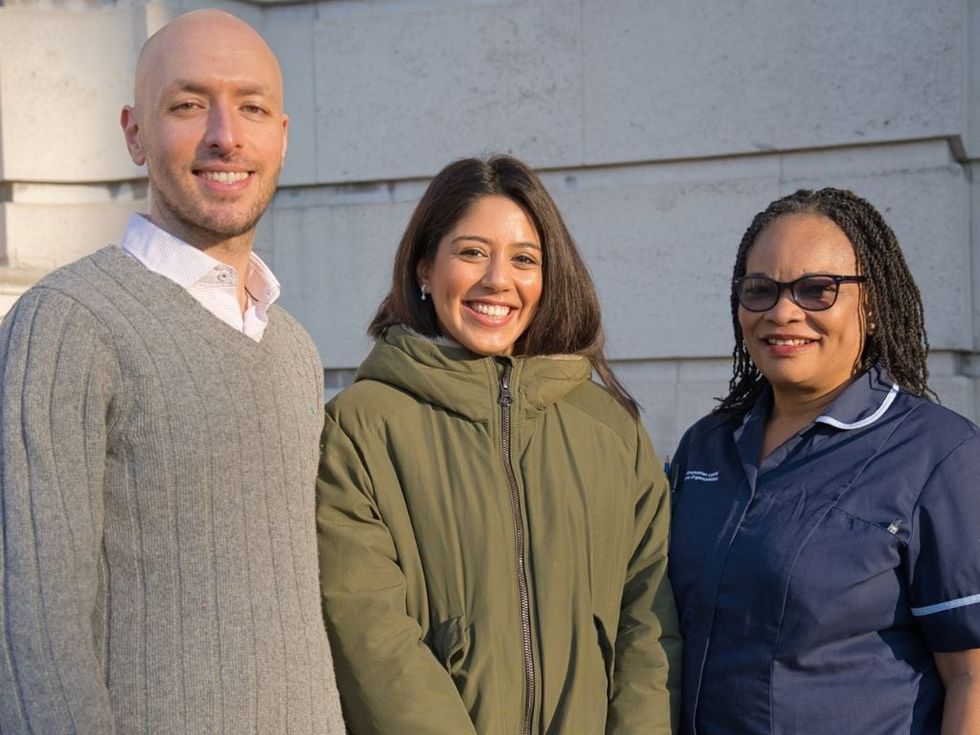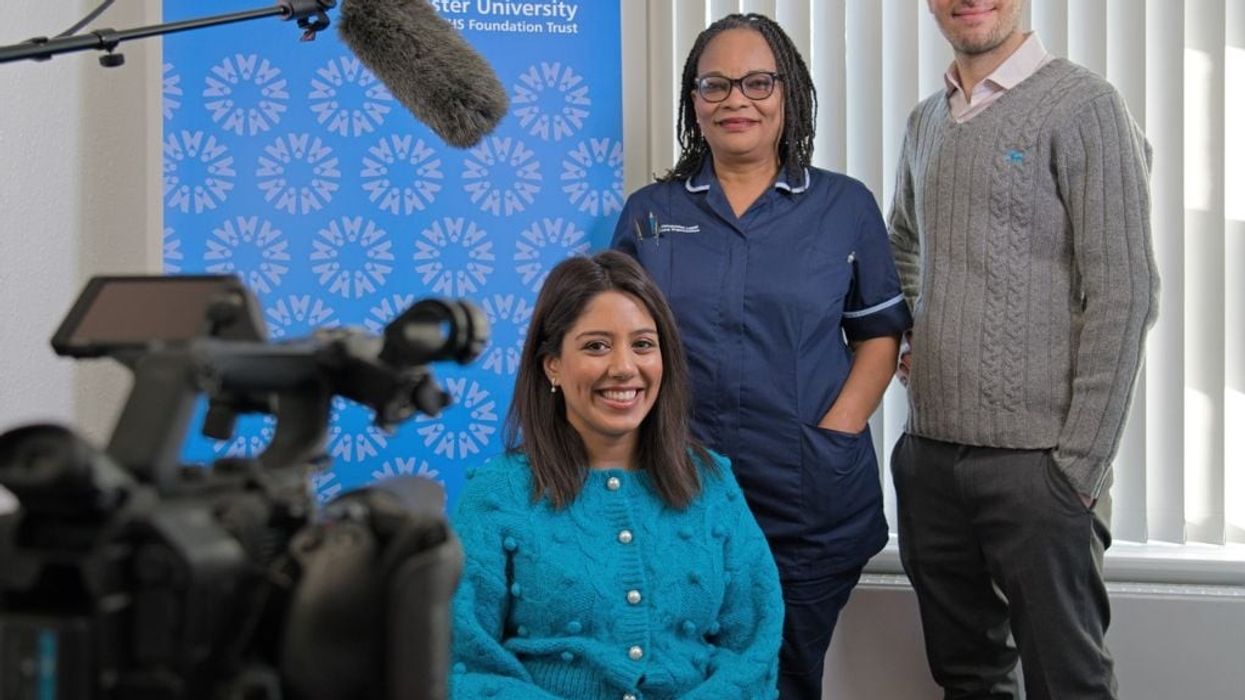For a woman from Manchester, her Sickle Cell condition was so painful that she once thought it might end her life, but a new revolutionary NHS treatment gave her a new hope and she now feels "as if she has wings".
Sanah Shaikh is one of the first patients in the UK to receive a new drug called Crizanlizumab, which will be available to around 5,000 people with Sickle Cell over the next three years.
The 33-year-old Sanah from Old Trafford, who receives the treatment at Manchester Royal Infirmary, said how periods of pain caused by the Sickle Cell condition, called a 'crisis', had left her in despair before the new medication started.

“When I have a crisis, it feels as if my body is on fire - I’ve had a crisis in my head, back, arms and legs - it’s truly debilitating," Sanah, who is a freelancer in marketing and communications, said.
“Other times it feels as though someone’s got a hammer and is hammering it into you – they’re smashing it into your body. Or it feels as though bricks are being thrown onto you. It’s pulsating and at times it feels as though you’d rather it all ended because you can’t endure the pain," she added.
Such a crisis often requires a hospital admission so that patients can be given morphine to control the pain along with other treatment to prevent potentially fatal organ failure.
“Once I heard about Crizanlizumab being approved for NHS use, I spoke to my haematology consultant and requested to be included in the first round of potential patients taking it at Manchester Royal Infirmary. I would do anything to increase my chances of being cured or improving my health and illness," Sanah said.
“I was fortunate enough to be suitable for the drug. Since starting the treatment, I feel a lot safer and braver. I don't feel as fearful about having a hospital admission if I push myself a little more, whether that be with work, or working out.

“The fact that I've not been admitted into hospital during 2022 and have managed my crises at home is proof that my illness is better managed with Crizanlizumab. As a by-product it has given me much more confidence -- I feel like I've been given a set of wings.”
Dr Joseph Sharif, haematology consultant and Lead for Sickle Cell at Manchester Royal Infirmary said, “I am very pleased that we are able to offer this treatment to our patients with sickle cell at Manchester Royal Infirmary, and the feedback from patients so far, including Sanah, has been very positive.”
“Crizanlizumab has been shown to reduce the frequency of acute sickle pain crisis. Sickle pain crises can be severe and unpredictable and often result in hospital admission and patients can become very unwell.
“Many of the patients currently receiving this treatment in the North West currently live in the Manchester area, but as the Haemoglobinopathy coordinating centre for the region, we want to ensure all patients across our catchment area have equal access to this treatment.”
Sanah is now hoping to use her experience to raise awareness of the impact which Sickle Cell can have on people and how they can get help.
Towards this goal, she has recorded a special Q&A session -- a couple of hospital team members -- Dr Sharif and Grace Akpakpan, a specialist haemoglobinopathy nurse counsellor, were on hand to give her some encouragement.
The videos have been published on the website of Manchester University Hospital NHS Trust, which runs Manchester Royal Infirmary, and will be shared further on social media.
Sanah is also planning to speak about her experiences at national Sickle Cell conferences.
Dispelling 'Black or Afro-Caribbean' myth about Sickle Cell
Sanah, a woman of Indian heritage, believes that she can help dispel a widespread myth about Sickle Cell -- that it only affects people from Black or Afro-Caribbean backgrounds.
Although most Sickle Cell patients in England are from Black or Afro-Caribbean background, a smaller proportion are from other backgrounds, including Asian.
“This is a really common misconception, but Sickle Cell can affect anyone, whether you are Greek, Italian, Arab or Asian like I am," Sanah said.
“I hope I can raise the awareness of this by telling my story. I would like to make sure people like me know they can seek help if they think they have Sickle Cell. I don’t want anyone to suffer in silence.”
Patients with Sickle Cell are often predicted to have a shorter life expectancy and are at a greater risk of stroke and other significant organ complications.




